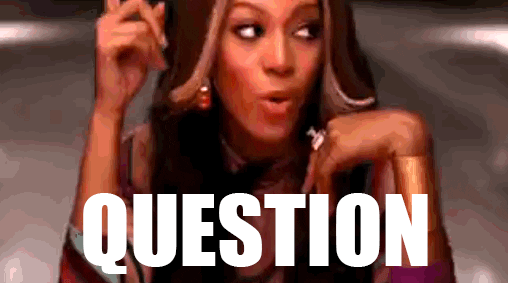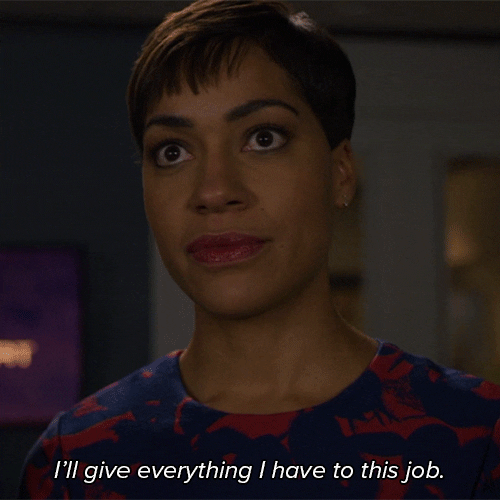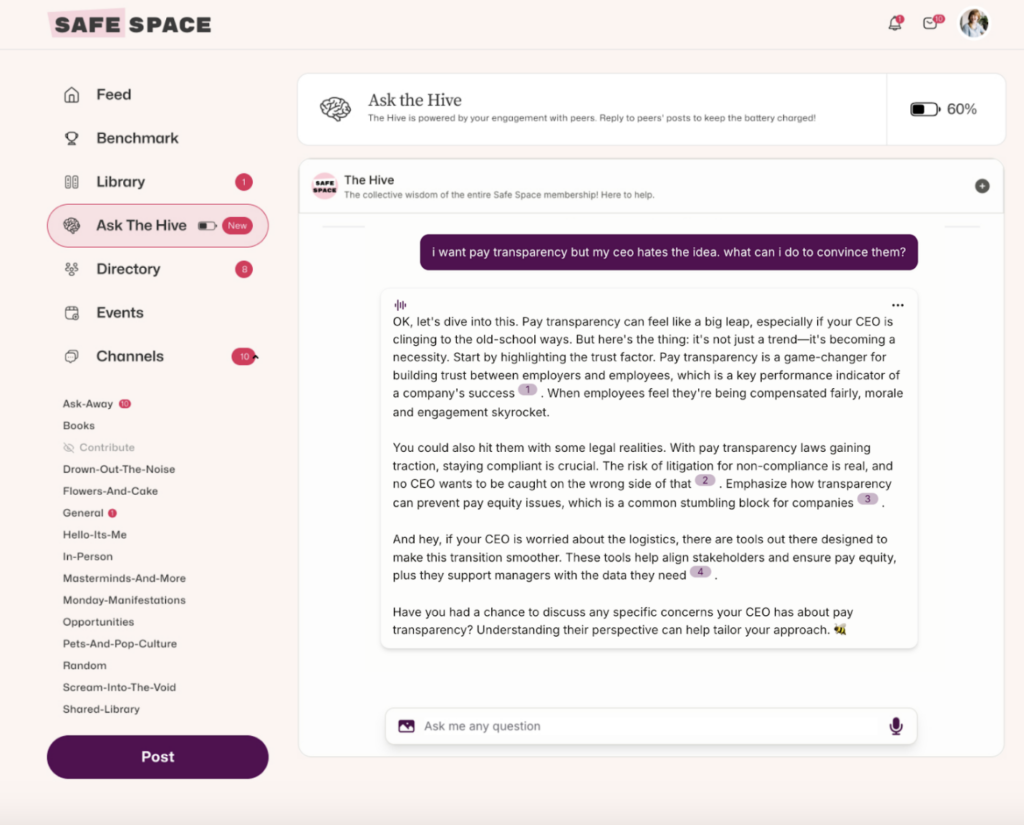
If you also heard that GIF in Beyonce’s voice, welcome.
Question: Do you have inequity in your workplace?
I bet you answered yes.
Why?
Because achieving equity in every aspect of the workplace is an ongoing challenge for a lot of companies and is quite complex.
Complex because there are societal issues that impact our ability to create equity at work.
Equity at work = fair treatment + fair access + fair advancement for all employees.
Every employee deserves to be treated fairly.
But that’s sometimes not the case.
The 3 most common places I see inequity in the workplace:
- Hiring
- Compensation
- Promotions
Let’s take a look at each one and see what HR can do.
1. Hiring

Raise your hand if you’ve hired someone without running an equitable process.
Guilty.
Ideally, when hiring you’re able to run a fully equitable process but I’ve been put in a position where that hasn’t been possible.
Why?
JOIN 150K+ HR LEADERS
Get insights, learnings, and advice on how to build companies and cultures that people actually love.
No spam. Unsubscribe any time.
Well, the excuse in that case there was a time crunch and the candidate was a trusted referral.
Cough opportunistic hire cough
There are few factors that can contribute to inequity in your hiring process, like:
- Bias
- Limited access to the opportunity (like if the job is only shared in certain channels)
- Lack of diversity on the hiring team
- Lack of accommodations and accessibility
- Favoritism (hire my candidate aka friend!)
(Not so) fun fact: racial bias in hiring continues to contribute to increasing black-white wealth gap.
It all starts with hiring.
Where to get started: standardize your interview process. Unstructured interviews introduce more unconscious bias and candidates don’t have the opportunity to talk about what makes them qualified for the position.
A structured interview process ensures that you’re accurately AND fairly assessing candidates for their skills and not other reasons.
Bonus: be up front about the compensation.
More on that next!
2. Compensation

One of the most common ways inequity presents in the workplace?
Compensation.
(Not so) Fun facts:
- Women are paid 83.7% of what men earn.
- For every dollar a white man earns, a black woman earn .64 cents
- Working mothers earn .74 cents for every dollar paid to fathers
- Women carry 2.5 times more unpaid work than men
- The pay gap exists in nearly every profession.
The pay gap has ripple effects with women historically earning less they receive less in Social Security and lag behind men in retirement savings.
It’s really easy to read all of those facts and think, well what the hell can I do about this?
A lot.
Please don’t be discouraged thinking this is a societal problem that will never be fixed! As HR leaders we have SO MUCH power to help alleviate the inequity women and underrepresented groups face.
Not to mention, more states are passing pay transparency laws in order to combat this inequity! We have the law on our side. But take that with a grain of salt because TBD on when and how these laws will be enforced.
Where you can get started: Conduct a pay audit.
You can’t fix what you don’t know is broken. A pay audit helps you understand where there are current gaps.
To note: there can be some legal repercussions from taking on this work. Make sure you understand the appetite to address issues and how to document concerns before diving in.
Additional helpful reading: why is talking about compensation so hard?
3. Promotions

I have a love/hate relationship with promotions.
Why?
Love: Promotions present an opportunity for someone’s career to take the next step. I love growth.
Hate: Promotions are glamorized and oftentimes employees have zero control over getting promoted.
Cue: inequity.
Fun fact: 53% of employees report that promotions are unfair with 7 out of 10 employees saying managers play favorites.
No shit!
There are a lot of factors that can make promotions inequitable, the most notorious though is bias. Our unconscious bias can have us making decisions about who is worthy of a promotion on factors other than work product.
(Not so) fun fact: women are promoted less frequently than men.
Cough bias cough.
If unconscious bias is um unconscious then what can HR leaders do to combat this and the impacts on the equity of promotions?
Where you can get started: Write your promotion guidelines. In there it should be clear how employees become eligible, what is the objective or subjective criteria, and who is involved in the decision making process.
Employees will be thrilled that getting promoted is no longer a mystery.
Bring it all back:

^ If you get this reference, we should be friends.
Bringing it all back: inequity at work is more common than we realize.
There’s a ton of opportunity for HR/People leaders to intervene in an effort to build an equitable environment.
Every employee deserves the opportunity to thrive.
I just threw a lot at ya and it can feel overwhelming to think you have to run and address all of those RIGHT NOW.
Start with the action items I called out as a place to start.
Every little step counts and can build into something bigger.
What not to do: know there is inequity and do nothing about it.


